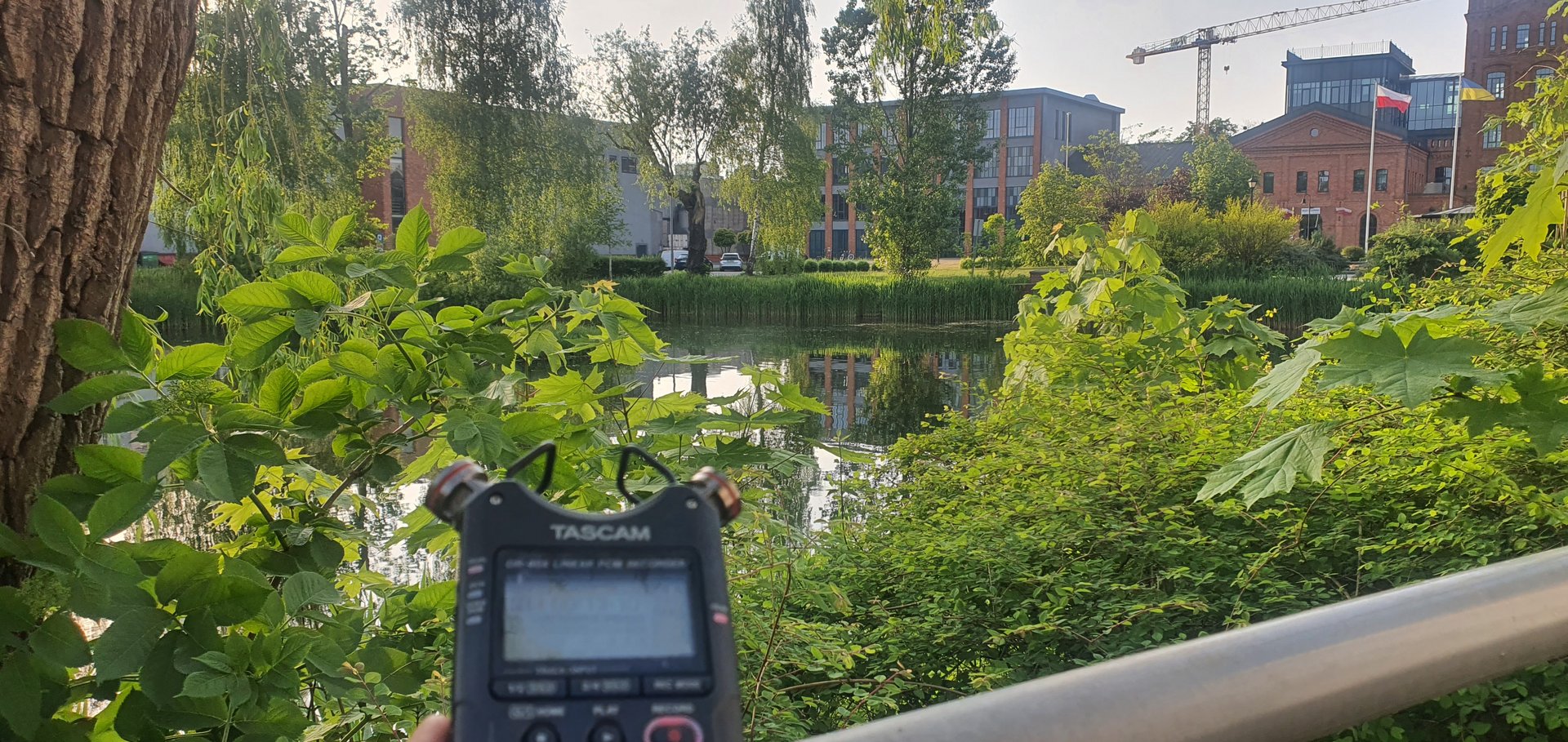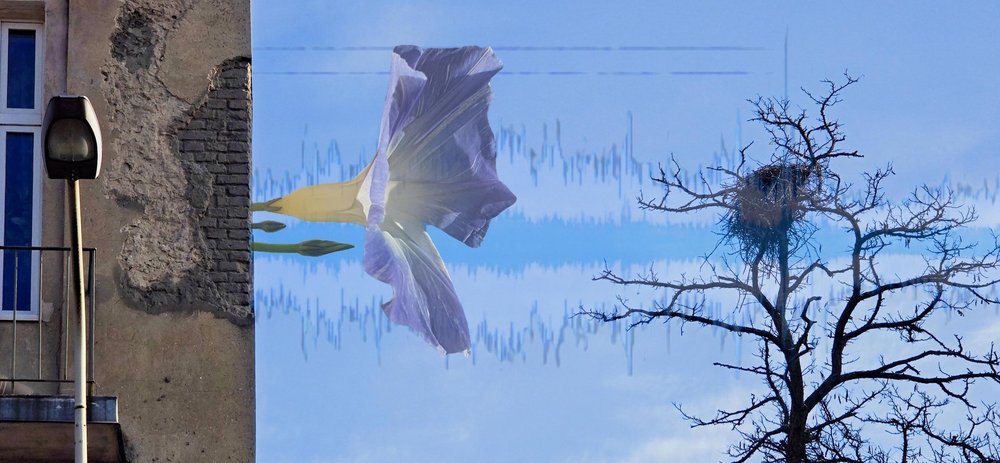The project develops the idea of communal listening as a form of cognition, care and joint responsibility for shared spaces. It is based on the belief that sound – treated not only as an aesthetic experience but also as a cognitive and political tool – allows us to uncover hidden relationships between residents, places and the everyday life of the city. In a time when the urban experience is dominated by the visuality and haste, the project proposes an audiocentric alternative: attentive, critical and communal listening.
The project activities combine sound art, urban research and civic education, creating a space for dialogue between artists, researchers and residents. The cooperative work of the teams from Lodz and Cork includes field recordings, sound walks, graphic score, and speculative mapping of the city's acoustic future. Each of these methods allows us to "hear" space differently – as a multi-layered system of relationships, memories and tensions, where the past and the future resonate with each other.
The project develops an art-based research methodology, combining social reflection with artistic experimentation and participatory practices. The focus is on urban acoustemology – learning through hearing – which reveals how urban, environmental and cultural decisions materialise in the everyday sound of the city.

“Resonant Cities” project addresses the challenges typical of post-industrial cities like Lodz and Cork: fragmentation of local identity, loss of sensitivity to tangible and intangible heritage and poor quality of shared spaces. Through communal listening practices, the project strengthens social capital, develops civic competences and shapes the city's awareness of itself as a common good.
The programme of the event scheduled for November 7 includes:
- Panel discussion – a conversation with Maciej Adamiak (Faculty of Geographical Sciences, University of Lodz), Justyna Anders-Morawska (Faculty of International and Political Studies, University of Lodz), Piotr Dąbrowski, and Joanna Szumacher (W Y Gallery). We will discuss the use of field recordings in archiving urban soundscapes, mapping neighbourhoods and suburban areas, the creative use of recordings in composition, and monitoring space through sound using machine learning.
- Presentation of field recordings
- Spatial sound installation Pole Siłowe (Joanna Szumacher | Justyna Anders-Morawska).
Live concert (Joanna Szumacher | Justyna Anders-Morawska) – a collage and deconstruction of field recordings, electronics and instruments (piano and toy piano), showing the diversity of the city’s sound, the tensions between civilisation and nature, the variability of urban space and inspirations from the soundscape in the works of composers from different eras (Daquin, Debussy, Janáček, Messiaen, Curran, Takemitsu).
______________________________________________________________________________________________________________________________
The project is being implemented by the New Culture and Education Association / W Y Gallery, the University of Lodz, and University College Cork. It is co-created by Dr Justyna Anders-Morawska, Dr Michał Sędkowski, Dr Denis Linehan, Dr Jeffrey Weeter, and Joanna Szumacher, who is an artist and curator of the W Y Gallery. Students from both universities are also involved: Pola Piekarska, Jakub Janiak, and Sebastian Novoa Peña.
Source: Dr Justyna Anders-Morawska (University of Lodz)

